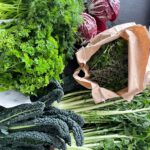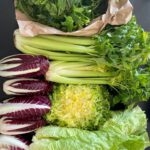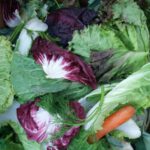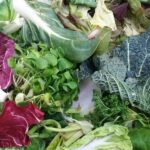In addition to vitamins and minerals, rabbits also need secondary plant compounds. This is crucial for them to stay healthy. As herbivores, rabbits depend on these secondary plant compounds. You should ensure they are always available. Wild plants provide all the necessary secondary plant compounds; if wild plants cannot be gathered, you can choose certain types of salad greens that contain the highest amounts of these compounds.
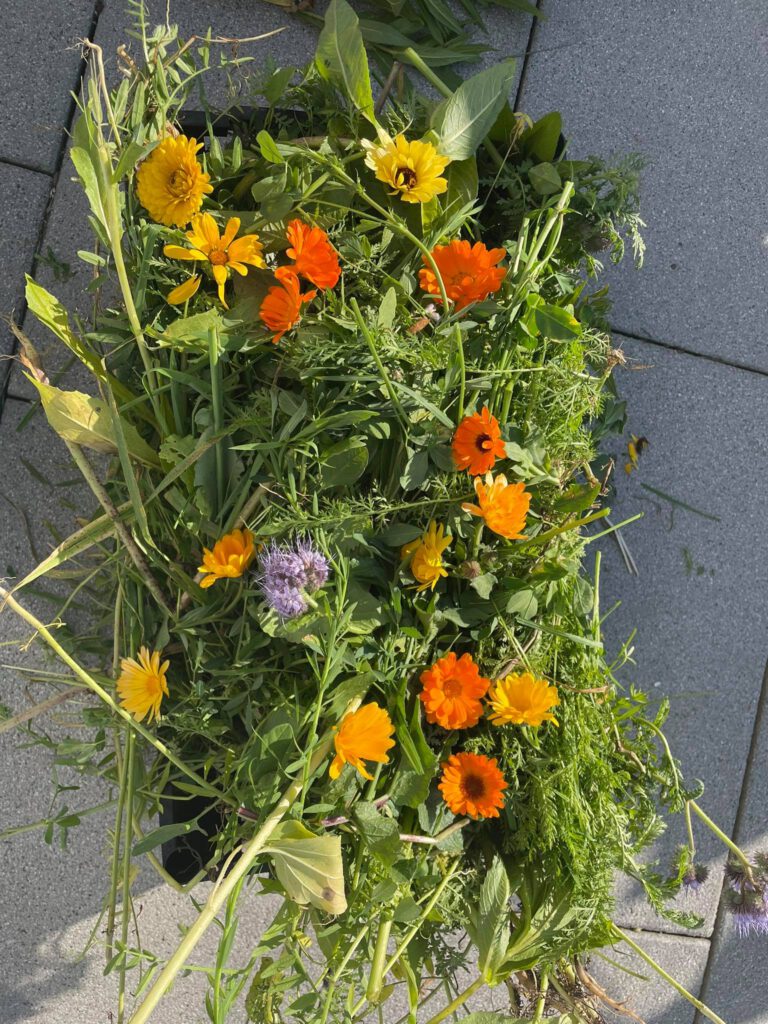

Contents
What are secondary plant compounds
They occur naturally in plants and serve to repel natural predators, protect plants from UV rays, and aid in the pollination and dispersal of fruits and seeds. These compounds also provide many important benefits for your rabbit.
| Secondary plant compound: | Present in: | Effect: |
| Flavonoids | Hawthorn, milk thistle, dandelion, nettle, yarrow, outer leaves of vegetables (e.g., cabbage), and the peels of vegetables and fruits. | Protects blood vessels and liver, antioxidant, antispasmodic, diuretic, anti-inflammatory |
| Bitter compounds | Bitter-tasting: artichoke, chicory, endive, angelica, daisies, yarrow, hops, dandelion, wormwood, Centaurium. | Stimulates the digestive glands, increases appetite, liver protector. |
| Tannin | Walnut, oak, chestnut, blackberry plant, goosegrass cinquefoil, ribwort plantain, raspberry plant, witch hazel, bloodroot, strawberry leaves, plantain leaves, green tea, conifer plants (tannins). | Anti-inflammatory, astringent, antimicrobial, soothing, local anesthetic. |
| Saponin | Ivy, primrose, chestnut, licorice, goldenrod. | Expectorant (thins mucus), antimicrobial, strengthens veins, stimulates the immune system. |
| Pungent compounds | Spicy-tasting: horseradish, mustard seeds, radish, nasturtium, chili, ginger. | Antimicrobial, irritating to mucous membranes, stimulates blood circulation, stimulates circulation. |
| Glucosinolates | It is also a substance with a spicy and bitter taste: radish, mustard, watercress, cabbage, nasturtium, leek, garlic, Cardamine pratensis. | Antimicrobial for urinary tract diseases (kidney, bladder) and respiratory tract diseases (rabbit cold), digestive, appetite-enhancing, antiparasitic, insecticidal, immune-stimulating. |
| Inulin | Jerusalem artichoke, chicory, dandelion, artichoke, elecampane. | Ideal for diabetes, regulates digestion (prebiotic). |
| Essential oils | Umbelliferous plants (caraway, parsley…), many herbs such as sage, thyme, anise, caraway, fennel, yarrow, chamomile, conifers… | Stimulates the digestive glands, appetizing, antimicrobial, antispasmodic, sedative. |
| Mucilage | Mallow, marshmallow root, flaxseed, chia seed, Plantago major. | Anti-irritant, mucous membrane protector, immune-stimulating. |
Essential oils
Found in: Umbelliferous plants (caraway, parsley…), many herbs such as sage, thyme, conifers…
Effect: antibacterial, fungicidal, antiviral, ideal for digestive and respiratory diseases. Essential oils are crucial for the health of rabbits.
Bitter compounds
In winter, bitter salads are suitable to provide rabbits with enough bitter compounds.
Found in: All bitter-tasting plants, such as artichoke, chicory, endive, angelica, daisies, yarrow, hops, dandelion, wormwood, and Centaurium.
Effect: Promotes and activates digestion and appetite. Antispasmodic, anti-inflammatory, antifungal, and antibacterial. For healthy digestion, bitter compounds should be included in the daily diet.
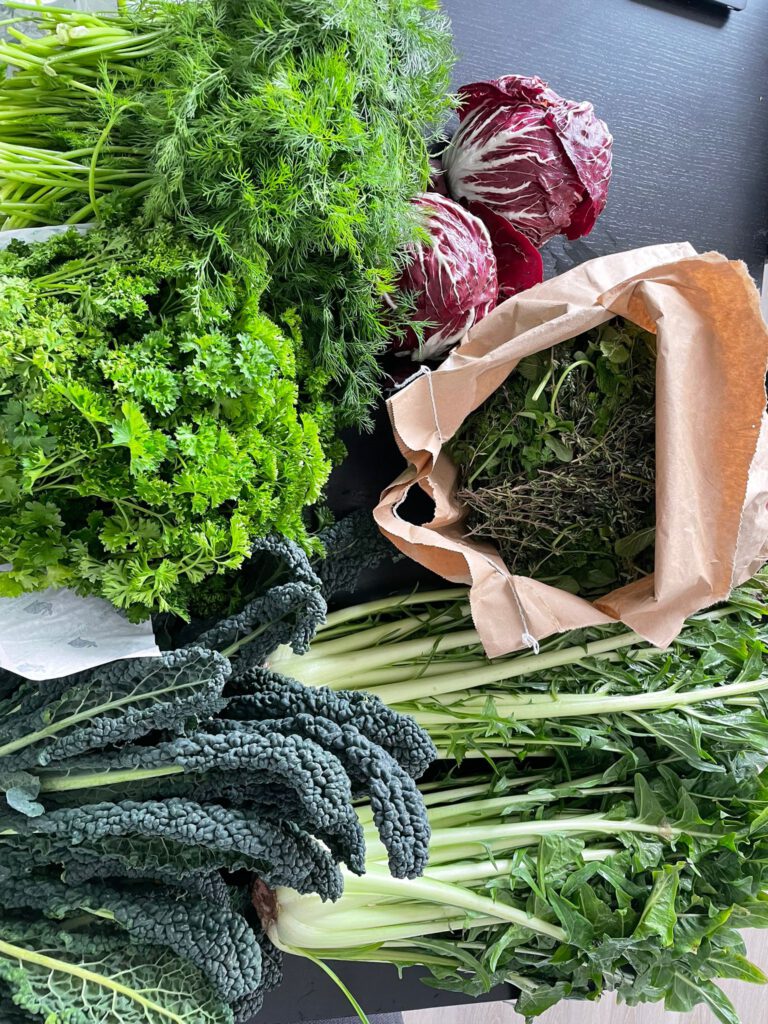
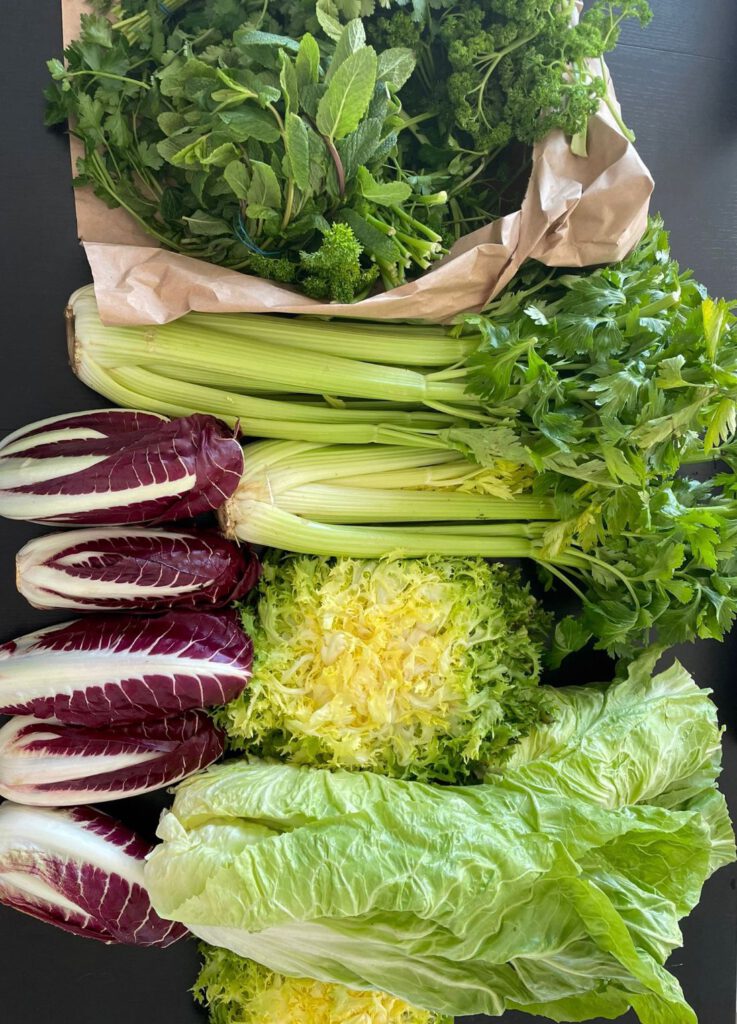
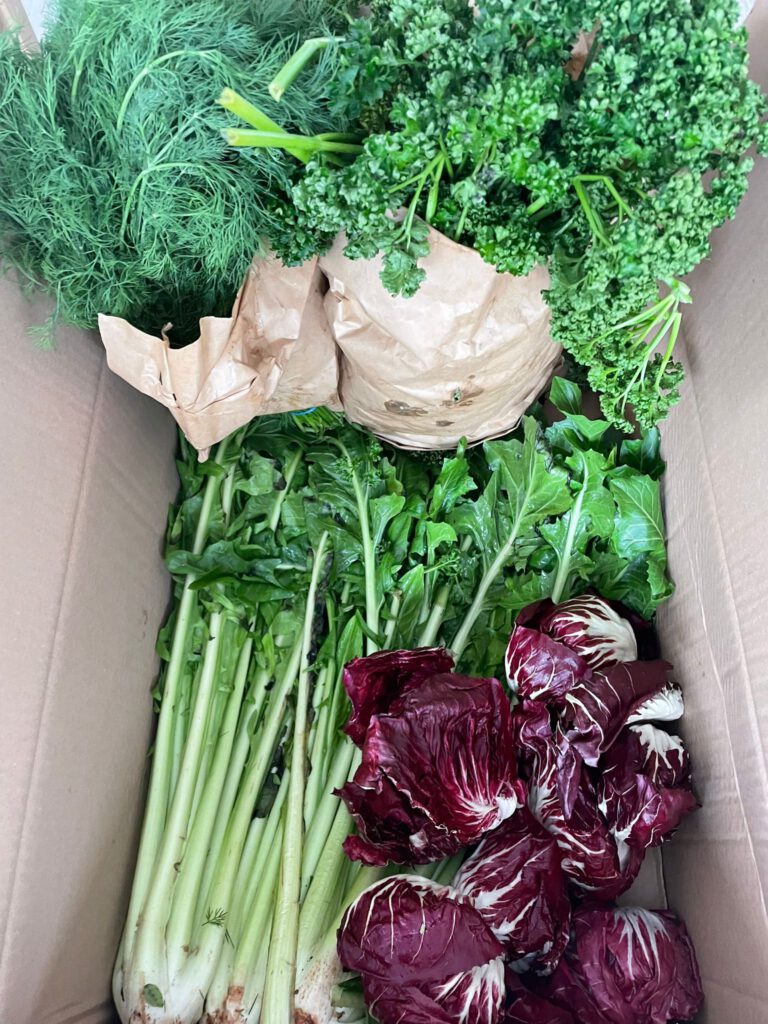
Tannic acid and tannins
Found in: Walnut, oak, chestnut, blackberry plant, ribwort leaves, raspberry plant, strawberry leaves, plantain leaves, green tea, conifer plants (tannins).
Effect: Antibacterial, antiviral, astringent, analgesic, hemostatic, anti-inflammatory.
Used for stomach and intestinal inflammations, urinary tract infections, skin diseases, diarrhea, and wound healing.
Flavonoids
Found in: Wild plants, outer leaves of vegetables (e.g., cabbage), peels of vegetables and fruits.
Effect: Various, including antiviral, antibacterial, protection against cancer and cardiovascular diseases, and cholesterol reduction.
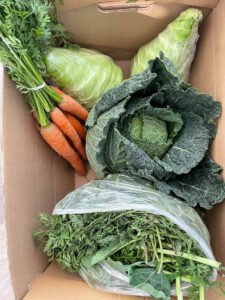
Inulin
Found in: Jerusalem artichoke, dandelion, artichoke.
Effect: Ideal for diabetes, regulates digestion (prebiotic).
Oxalic acid
Found in: Beetroot 72 mg/100 g, parsley 166 mg/100 g, spinach 571 mg/100 g, chard 650 mg/100 g, celery 15.2 mg/100 g, beets, strawberries 15.8 mg/100 g, raspberries 16.4 mg/100 g, kiwi, alfalfa, dandelion.
Effect: In large amounts, it can lead to calcium and iron deficiencies, kidney damage, or urolithiasis.
Mustard oil glucosides
Effect: Antiviral, antibacterial, prevents cancer. Ideal for urinary tract diseases (kidney, bladder) and respiratory tract diseases (rabbit cold). They have a bitter taste.
Found in: Radish, mustard, watercress, cabbage, nasturtium.
Sources of information:
Brendieck-Worm, C., & Melzig, M. F. (Eds.) (2018): Phytotherapie in der Tiermedizin. Georg Thieme Verlag.
Fleischhauer, St. G., Guthmann, J. (2015): Essbare Wildpflanzen Ausgabe: 200 Arten bestimmen und verwenden, AT-Verlag




